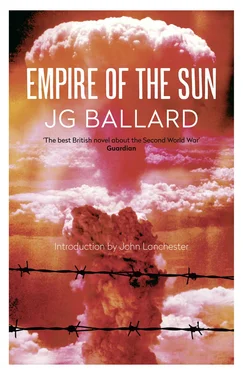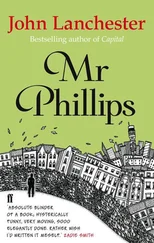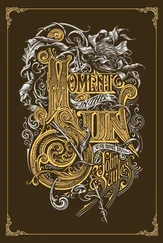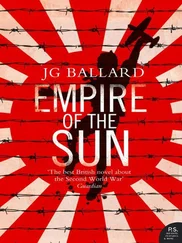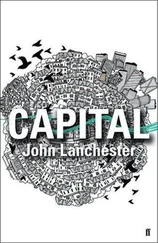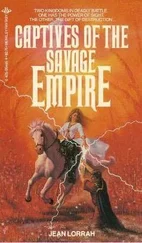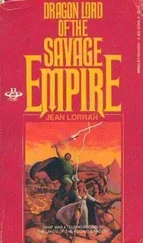Had his brain been damaged by too many war films? Jim had tried to tell his mother about his dreams, but like all the adults in Shanghai that winter she was too preoccupied to listen to him. Perhaps she had bad dreams of her own. In an eerie way, these shuffled images of tanks and dive-bombers were completely silent, as if his sleeping mind was trying to separate the real war from the make-believe conflicts invented by Pathé and British Movietone.
Jim had no doubt which was real. The real war was everything he had seen for himself since the Japanese invasion of China in 1937, the old battlegrounds at Hungjao and Lunghua where the bones of the unburied dead rose to the surface of the paddy fields each spring. Real war was the thousands of Chinese refugees dying of cholera in the sealed stockades at Pootung, and the bloody heads of communist soldiers mounted on pikes along the Bund. In a real war no one knew which side he was on, and there were no flags or commentators or winners. In a real war there were no enemies.
By contrast, the coming conflict between Britain and Japan, which everyone in Shanghai expected to break out in the summer of 1942, belonged to a realm of rumour. The supply ship attached to the German raider in the China Sea now openly visited Shanghai and moored in the river, where it took on fuel from a dozen lighters – many of them, Jim’s father noted wryly, owned by American oil companies. Almost all the American women and children had been evacuated from Shanghai. In his class at the Cathedral School, Jim was surrounded by empty desks. Most of his friends and their mothers had left for the safety of Hong Kong and Singapore, while the fathers closed their houses and moved into the hotels along the Bund.
At the beginning of December, when school ended for the day, Jim joined his father on the roof of his office block in Szechwan Road and helped him to set fire to the crates of records which the Chinese clerks brought up in the elevator. The trail of charred paper lifted across the Bund and mingled with the smoke from the impatient funnels of the last steamers to leave Shanghai. Passengers crowded the gangways, Eurasians, Chinese and Europeans fighting to get aboard with their bundles and suitcases, ready to risk the German submarines waiting in the Yangtze estuary. Fires rose from the roofs of the office buildings in the financial district, watched through field-glasses by the Japanese officers standing on their concrete blockhouses across the river at Pootung. It was not the anger of the Japanese that most disturbed Jim, but their patience.
As soon as they reached the house in Amherst Avenue he ran upstairs to change. Jim liked the Persian slippers, embroidered silk shirt and blue velvet trousers in which he resembled a film extra from The Thief of Bagdad , and he was eager to leave for Dr Lockwood’s party. He would endure the conjurors and newsreels, and then set off for the secret rendezvous which the rumours of war had prevented him from keeping for so many months.
By way of a happy bonus, Sunday was Vera’s free afternoon, when she visited her parents in the ghetto at Hongkew. This bored young woman, little more than a child herself, usually followed Jim everywhere like a guard dog. Once Yang had driven him home – his parents were to stay on for dinner at the Lockwoods’ – he would be free to roam alone through the empty house, his keenest pleasure. The nine Chinese servants would be there, but in Jim’s mind, and in those of the other British children, they remained as passive and unseeing as the furniture. He would finish doping his balsa-wood aircraft, and complete another chapter of the manual entitled How to Play Contract Bridge that he was writing in a school exercise book. After years spent listening to his mother’s bridge parties, trying to extract any kind of logic from the calls of ‘One diamond’, ‘Pass’, ‘Three Hearts’, ‘Three No Trumps’, ‘Double’, ‘Redouble’, he had prevailed on her to teach him the rules and had even mastered the conventions, a code within a code of a type that always intrigued Jim. With the help of an Ely Culberston guide, he was about to embark on the most difficult chapter of all, on psychic bidding – all this and he had yet to play a single hand.
However, if the task proved too exhausting he would set off on a bicycle tour of the French Concession, taking his airgun in case he ran into the group of French twelve-year-olds who formed the Avenue Foch gang. When he returned home it would be time for the Flash Gordon radio serial on station XMHA, followed by the record programme when he and his friends telephoned requests under their latest pseudonyms – ‘Batman’, ‘Buck Rogers’, and (Jim’s) ‘Ace’, which he liked to hear read out by the announcer though it always made him cringe with embarrassment.
As he flung his cassock to the amah and changed into his party costume he found that all this was threatened. Her head muddled by the rumours of war, Vera had decided not to visit her parents.
‘You will go to the party, James,’ Vera informed him as she buttoned his silk shirt. ‘And I will telephone my parents and tell them all about you.’
‘But, Vera – they want to see you. I know they do. You’ve got to think of them, Vera …’ Baffled, Jim hesitated to complain. His mother had told him to be kind to Vera, and not to tease her as he had done the previous governess. This moody White Russian had terrified him as he recovered from measles by telling him that she could hear the voice of God in Amherst Avenue, warning them from their ways. Soon afterwards Jim had impressed his school friends by announcing that he was an atheist. By contrast, Vera Frankel was a calm girl who never smiled and found everything strange about Jim and his parents, as strange as Shanghai itself, this violent and hostile city a world away from Cracow. She and her parents had escaped on one of the last boats from Hitler’s Europe and now lived with thousands of Jewish refugees in Hongkew, a gloomy district of tenements and faded apartment blocks behind the port area of Shanghai. To Jim’s amazement, Herr Frankel and Vera’s mother existed in one room.
‘Vera, where do your parents live?’ Jim knew the answer, but decided to risk the ruse. ‘Do they live in a house?’
‘They live in one room, James.’
‘One room!’ To Jim this was inconceivable, far more bizarre than anything in the Superman and Batman comics. ‘How big is the room? As big as my bedroom? As big as this house?’
‘As big as your dressing-room. James, some people are not so lucky as you.’
Awed by this, Jim closed the door of the dressing-room and changed into his velvet trousers. His eyes measured the little chamber. How two people could survive in so small a space was as difficult to grasp as the conventions in contract bridge. Perhaps there was some simple key which would solve the problem, and he would have the subject of another book.
Fortunately, Vera’s pride made her rise to the bait. When she had left for her parents’, setting off on the long walk to the tram terminus in the Avenue Joffre, Jim found himself still pondering the mystery of this extraordinary room. He decided to raise the matter with his mother and father, but as always they were too distracted by news of the war even to notice him. Dressed for the party, they were in his father’s study, listening to the short-wave radio bulletins from England. His father knelt by the radiogram in his pirate costume, leather patch pushed on to his forehead and spectacles over his tired eyes, like some scholarly buccaneer. He stared at the yellow dial embedded like a gold tooth in the mahogany face of the radiogram. On a map of Russia spread across the carpet he marked the new defensive line to which the Red Army had retreated. He stared at it hopelessly, as mystified by the vastness of Russia as Jim had been by the Frankels’ minute room.
Читать дальше
